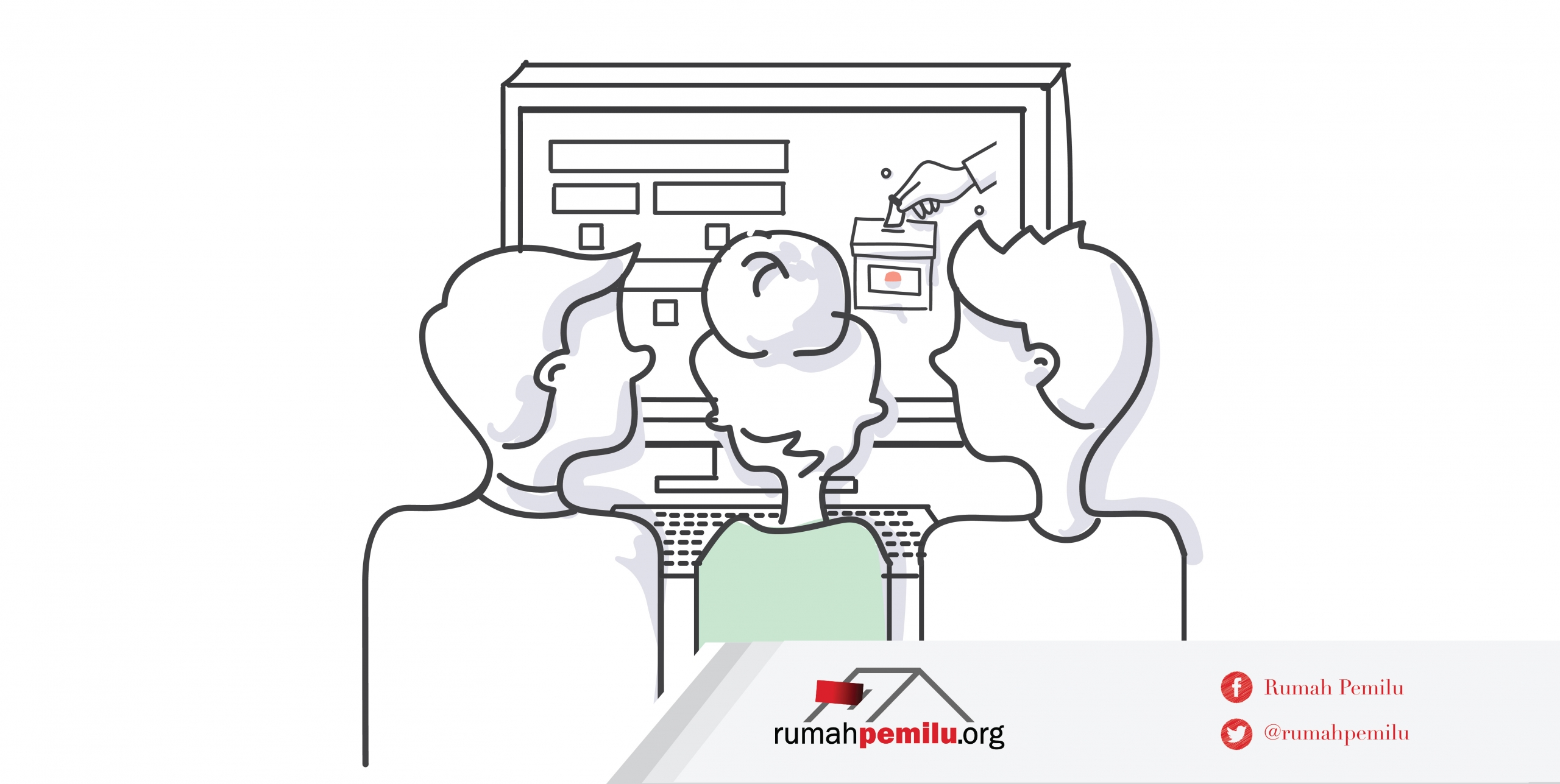Members of Parliament recommends the Election Commission (KPU) to allow criminal convicts in probation to participate in elections as candidate. It violates the effort to establish a more clean and reliable electoral process.
The hearing session between KPU and members of the Parliament was getting intense when KPU asked members of the Parliament to alter the conclusion of their previous hearing session (August 26-27). KPU does not agree with the sentence agree to alter the KPU Regulations.
KPU asked permission to change the sentence into: members of Commission II of the Parliament recommends KPU to alter the KPU Regulations.
“We have different views (with the members of the Parliament), although we respect the conclusion of the hearing session,†says Juri Ardiantoro, the Chairman of KPU, after the hearing session at the Parliamentary House (08/29).
Stuck
One of the conflicting view between KPU and the Parliament is regarding the regulation that allows criminal convict in probation to participate in election as candidate. KPU does not agree with the regulation.
Upon hearing the disagreement from KPU, several members of the Parliament interrupted the discussion to express their own disagreement with the regulation.
“There has been news going around saying that members of the Parliament allow criminal convicts to participate in election as candidate. Which members? I, and my colleagues from the Indonesian Democracy Party-Struggle (PDI-P), do not agree with the regulation,†said Arteria Dahlan, one of the members of Commission II from PDI-P.
The regulation then disputed once more. There were two other political parties expressing their disagreement: the National Mandate Party (PAN) and the Great Indonesia Movement (Gerindra).
Instead of reaching an agreement, the debate between the supporters of the regulation and the opposing parties was getting tense. The chairman of the session then decided to assuage the debate by converting the topic of the debate to other regulations. At the end, members of the Parliament still wanted to allow criminal convicts in probation to participate in election as candidate.
Violation
Members of Commission II argue that the court decision for criminal convict in probation is not final and decisive (inkracht). The decision is only inkracht when the probation period has completed.
Therefore, referring to the Penal Code (KUHP), the government is prohibited to violate or compromise the rights to vote and to be voted of criminal convict in probation.
The Coalition for Clean Local Election does not agree. A criminal convict, even though he/she is only in probation, should be considered as a person with legal problem. A convict in probation is still responsible for his/her action, and they may be suddenly be jailed for it. The difference between convict in probation and regular convict is just that regular convict spent his/her punishment in jail, while convict in probation spent his/her punishment outside of jail. “The only difference is convict in probation spent his/her punishment outside of jail,†says Donal Fariz, the Coordinator of Political Corruption Division in the Indonesia Corruption Watch (ICW) (08/29).
According to Donal, the recommendation to allow criminal convict in probation to be registered as candidate has violated the effort to establish a clean and reliable electoral process.
KPU also has similar argument with Donal. The spirit of the laws is to provide voters with candidates who are free from corruption. The regulation that allows criminal convict to be candidate in election may as well violating such spirit of the laws.
Circumventing Parliament Demand
KPU objection with the recommendation from the Parliament proved to be inconsiderable for the members of the Parliament. KPU is obliged to alter the KPU Regulations.
“KPU is obliged by Article 9 of the Local Election Law to follow any recommendation from the Parliament. This is clearly a way for politicians in the Parliament to intervene with KPU decision,†says Fadli Ramadhanil, a researcher from the Association for Elections and Democracy (Perludem), when contacted by phone (08/29).
During the hearing session, KPU has two techniques to circumvent the demand from Parliament.
First, KPU positioned itself not as a decision maker, but as an institution that wants to consult with the Parliament. “We positioned ourselves as an institution that seeks for clarification and explanation, not as an institution that wants to make a decision together with the Parliament,†says Juri Ardiantoro, Chairman of KPU.
KPU expressed their objection many times and asked the members of the Parliament to agree to disagree. “KPU thinks criminal convict in probation is still a criminal. Members of the Parliament thinks they are not. We should agree to disagree,†says Juri.
Secondly, KPU asked the legal and administrative follow up of the recommendation. KPU thinks the recommendation has no legal basis if it only signed by the members of Commission II instead of the Chairman of the Parliament as the representative of the institution.
Rambe Kamarul Zaman—the chief of Commission II—asserts that the recommendation has a strong legal basis even if it does not signed by the Chairman of the Parliament.
“There is no need (for Parliament Chairman to sign the recommendation). It has already been regulated by the Law,†Rambe says.
Until yesterday (08/29), the decision of the hearing session has not changed. Commission II, the Ministry of Home Affairs, and KPU has to alter the provision in KPU Regulations No.5/2016 on Candidacy. If the provision is not change until the next hearing session on Friday (09/02), criminal convicts in probation may freely registered themselves as candidates in local elections.
MAHARDDHIKA
 Rumah Pemilu Indonesia Election Portal
Rumah Pemilu Indonesia Election Portal



